News from ProDentures
Your Source for Affordable Partial & New Dentures in Houston, Texas
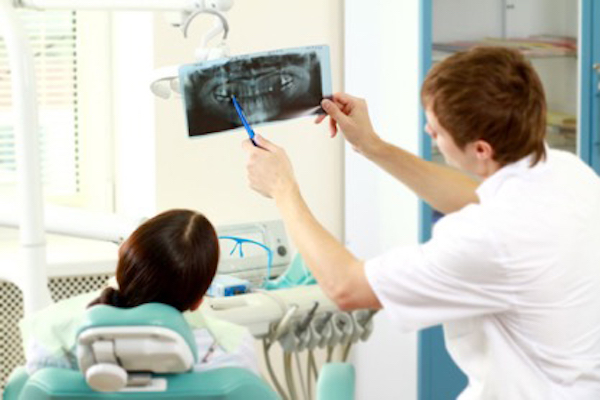
If you have a missing tooth or two, a dental implant procedure from a reputable Houston dentist may be the best option for you. After all, dental implants are renowned for being able to look, function, and feel just like natural teeth.
Furthermore, dental implants are known to help prevent bone loss along the jaw, helping you avoid “sunken cheeks” and wrinkles.
Considering how effective dental implants are as replacement teeth, it’s only natural that you want the procedure to go as smoothly.
In general, dental implant procedures have a very high success rate, but there are definitely several steps you should take prior to getting dental implants at a trusted elder dental practice like ProDentures.
Some of these steps include:
Now is a Great Time to Quit Drinking or Smoking
During the weeks leading up to the procedure is a great time to quit smoking. Cigarettes are known to inhibit the production of white blood cells, which may increase the risk of the site of the procedure becoming infected.
On the other hand, alcohol consumption diminishes the body’s ability to properly heal itself. This means it may take longer for the area surround the implant to properly close and heal. It is best to avoid drinking alcohol in any amount a week before and a week after getting dental implants.
Maintain Proper Oral Hygiene
Oral health plays a large role in determining whether you may proceed with dental implants or not. If you have already been cleared for the procedure, make sure you keep up with proper oral hygiene.
Three weeks is more than enough time for gum issues to arise, which can easily push back the date of the procedure or even cause an infection later on. Remember to brush your teeth and floss before every meal. In addition, rinsing twice a day with mouthwash will help keep your mouth free of dangerous bacteria.
List Any and All Medication that You are Currently Taking
It is common for people to be taking medication or supplements these days. Take note, however, that you may need to stop taking certain medication in the days leading up to dental implant surgery.
Be sure to inform your dentist about any and all medication and/or supplements (both prescription and over the counter) you may be taking. Some medication may lead to conflicts or complications.
An experienced dental implant dentist should be able to identify which ones you need to hold off taking and which ones you can continue to take.
Discuss Sedation Options with Your Dentist
Lastly, take the time to discuss sedation options with your dentist beforehand.
In most cases, dental implant surgery only requires the use of local anesthesia. However, people who suffer from dental anxiety may prefer to be put under general anesthesia.
Do not hesitate to discuss this with your dentist to ensure the procedure itself goes well and that you are comfortable with the sedation method used.
Now that you know the steps to take prior to a dental implant procedure, make sure to carry out all the aforementioned steps as they can define the success of your procedure.
With the guidance of an experienced dental implant dentist like Dr. Paul Searby or Dr. Ron Evans at ProDentures, you’ll have a better chance at restoring your oral health and maintaining a beautiful smile.
Sources:
Dental Implants, WebMD.com
Who Is An Implant Candidate?, Colgate.com

People who are missing more than a few teeth often choose to have a trusted dentist create a new set of high quality dentures.
After all, modern technology and revamped techniques have allowed dentures to look and function nearly as well as natural teeth, making affordable new dentures a fantastic option for most people, especially older adults and those on a limited or fixed income.
If this is the first time you’ll be wearing dentures, however, they may feel a little awkward in the beginning. This is not uncommon since everyone requires a period of adjustment when wearing dentures for the first time.
Fortunately, there are many ways to help you adjust to your new dentures much faster.
Some of these ways include:
Talk to Your Dentist About Adhesives
The adhesive you use will play an important role in how well you adjust to your new dentures since dentures need to adequately anchored to the gumline. Talk to your dentist and ask about which types of adhesives he or she recommends.
A respected dentist will offer you suggestions that have worked for other patients. However, everyone is different, so be sure to experiment to find one that works best for you.
Practice Eating at Home
One of the more difficult things to do when wearing dentures for the first time would be chewing food. Keep in mind that “practice makes perfect”.
It would be best to get used to how your dentures fit and feel as you chew different types of food. Try to draft a menu with a diverse range of textures at home for the first week or so to help you get better acquainted with how your dentures respond to your chewing motions.
Sing Your Favorite Tunes
Some people find that speaking with dentures restricts the movement of the tongue, making it difficult to pronounce certain syllables properly.
A good way to practice speaking better is to sing along to your favorite songs while wearing your new dentures. Singing has long been used a form of speech therapy. At first, try singing along to slower songs and work on making sure the lyrics come out smoothly.
Have Your New Dentures Adjusted
Lastly, it is common to revisit the dentist to make minor adjustments as your bones begin to heal.
Pay close attention to how your dentures fit in your mouth. Slight discomfort in the first few days is natural, but if the dentures feel too tight or too loose after a few days, you may need to ask your dentist for an adjustment before your next visit.
ProDentures is the place for affordable new dentures in Houston, Texas. Give us a call today at 832-688-9726 to arrange a free, no-hassle on-on-one consultation with one of our experienced dentists.
Sources:
Five Tips For Getting Used To Dentures, colgate.com
Dentures FAQs, gotoapro.org
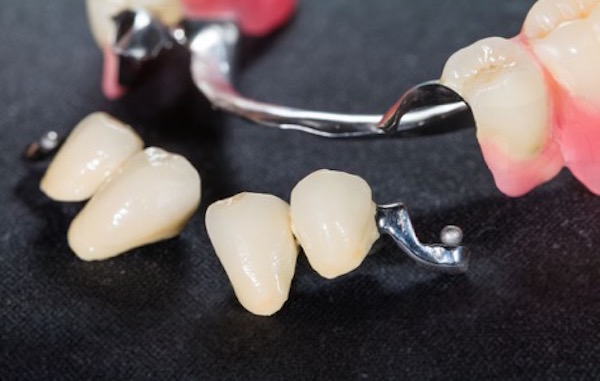
Partial dentures are much more affordable solution to more expensive dental implants. However, mishandling them may lead to damage all the same. Fortunately, there are many steps you can take to ensure your partial dentures last for years to come.
With that in mind, you may want to try the following maintenance tips:
Skip the Use of Toothpaste
Although today’s partial dentures look and function amazingly like natural teeth, it does not mean that you can clean them as if they were natural teeth. Typical toothpastes are too abrasive for the material used to craft partial dentures and may lead to damage. When cleaning affordable partial dentures, it’s best to use the warm water and a mild soap or a cleaning solution your dentist recommends.
Protect Your Dentures with a Thick, Soft Towel
Most people with dentures prefer to do so over the bathroom sink for the sake of convenience. In such cases, you should definitely place a thick and soft towel underneath your dentures as you clean them.
Partial dentures are designed to withstand the pressure exerted when biting, but they can easily chip or shatter when they fall on a hard surface like a countertop or the sink. Placing a towel underneath will help cushion the impact if your dentures slip through your fingers.
Leave Them to Soak While Sleeping
It is not advisable to go to bed while wearing partial dentures. However, this does not mean that you can just leave them lying on top of your bedside table. Partial dentures should be placed in soaking solution or clean water overnight to prevent them from drying out and warping.
This should also help minimize the chances of your partial dentures accidentally falling onto the floor in the middle of the night. Make sure, though, that you rinse out your dentures properly before putting them back on the next day.
If you notice that your dentures no longer fit easily…
Generally, your partial dentures should slide into place fairly easily, but it isn’t uncommon to find that your partial dentures no longer slide into place properly.
This is because some of your teeth and underlying bone structure may have started to shift. In such cases, never try to force them in as you can damage the dentures or even your teeth/gums. Instead, be sure to see a trusted dentist with ProDentures, and ask about the possibility having your dentures adjusted.
Of course, we are also able to repair or reline dentures as well. Give us a call today 1-800-776-3368.
Sources:
Removable Partial Dentures, mouthhealthy.org
Taking Care Of A Partial Denture, colgate.com

Although millions of people rely on replacement dentures to regain the functionality of their mouth, the American College of Prosthodontists strongly recommends patients to take out their partial dentures before they sleep. Dental professionals say that doing so will give the gums and bone a much needed break from the pressure of supporting dentures throughout the day. As any experienced dentist will tell you, however, not wearing dentures at night has more hygienic and health benefits than you might think.
Here are some good reasons to think twice about leaving your dentures on at bedtime…
Denture-Related Stomatitis
It is normal for salivary flow to be reduced while you sleep, causing your mouth to feel a little dry. Wearing dentures at night further inhibits the flow of saliva in your mouth, leading to a condition referred to as stomatitis (inflammation of mouth and lips).
Denture-related stomatitis affects the gum tissue underneath, like the palate, causing it to take on a reddened appearance. Once this inflammation sets in, you are more likely to get an infection caused by yeast and other types of bacteria. From there, you might also be at risk of developing cheilitis or cracking around the corners of the mouth, which may then also be infected by the same bacteria.
Pneumonia in the Elderly
Researchers in Japan have found a connection between wearing dentures during sleep and risk for pneumonia. The study was conducted over a period of three years and involved 524 randomly selected seniors with an average age of 87.8.
Empirical evidence suggested that denture wearing at night is not only associated with oral inflammation and bacteria growth, but with the potential to develop pneumonia as well.
As it turns out, wearing dentures 24 hours a day, without practicing proper oral hygiene, makes your mouth more susceptible to bacteria that can then be inhaled into the lungs. Combined with the difficulty of swallowing saliva with dentures on, older folks are more susceptible to contracting pneumonia and other chest infections.
Accelerated Bone Resorption
Bone loss is a common problem as one gets older, and wearing dentures the entire day may further accelerate the rate of resorption. The pressure of constantly wearing dentures wears down the gums and the bone beneath becomes more brittle.
As a result, the jaw loses its shape, causing your dentures to not fit properly. It can also alter your physical appearance, facial bone structure, and facial expressions. Resorption might also increase the likelihood of embarrassing slippages, and could even limit the foods you can eat.
Dentures or partial dentures are effective at restoring your smile only if you use and maintain them according to your dentist’s instructions.
The next time you visit us at one of the ProDentures offices, don’t hesitate to ask us about other ways to maintain good oral health.
Sources:
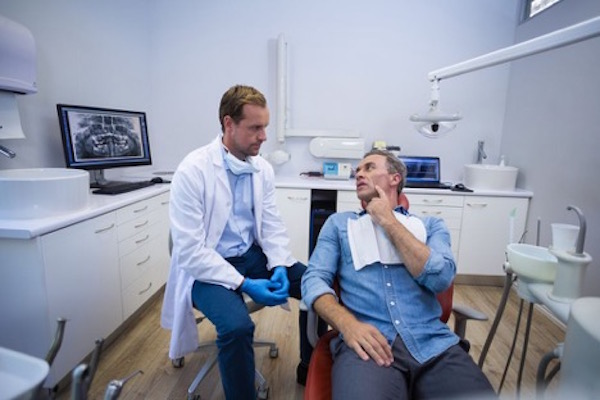
Over the last few years, more and more people are opting to get dental implants as a way to address the problem of missing teeth—and it’s not terribly difficult to see why. Dental implants look, function, and feel just like natural teeth.
If you are scheduled for dental implant surgery, it’s only natural to want to make sure the procedure goes smoothly. Fortunately, there are several steps you can take to better prepare you for dental implants. With that in mind, be sure to follow these tips:
Quit Smoking
Need another reason to finally quit smoking? Your upcoming procedure may be that extra push you need to break the habit for good.
Cigarette smoke is known to inhibit the body’s natural ability to heal itself, which may prolong your recovery period. Additionally, the tar left behind by cigarettes could lead to an infection at the implant site. It’s best to quit smoking for a few weeks prior to getting dental implants.
Inform Your Dentist of All Medication
Are you taking medication for any medical condition?
If so, it’s best to let your dentist know what you’re taking before committing to dental implants. This is because certain medication may interfere with the compatibility of the implant and your jawbone.
Some medication may also inhibit your body’s ability to heal itself as well and bog down your recovery. Your dentist may ask you to stop taking certain medication prior to the procedure, but be sure to consult with your physician first.
Prepare What You Will Need at Home After the Procedure
After the procedure, you’ll probably need to rest at home for a few days before heading back to work. Unfortunately, this means that you may be unable to leave your home to pick up any items you need.
With this in mind, prepare what you’ll need for the next few days ahead of time. For example, you may want to stock up on soft foods and soups for you to eat while recovering from the procedure. Cleaning clutter from the floor also makes it easier for you to move around and prevents you from exerting too much energy unnecessarily.
Arrange for Someone to Bring You Home
Getting dental implants may be an outpatient procedure, but that does not necessarily mean that you’ll be able to go home by yourself. Many patients still feel the effects of the anesthesia several hours after the procedure wraps up.
As such, you may be in no condition to drive so it’s best to ask a close friend or a family member to drive you home after and help you get into bed after getting dental implants.
Sources:
Who Is An Implant Candidate?, colgate.com
Dental Implants, webmd.com

Dentures are considered to be one of the best long-term and affordable solutions to missing teeth. However, as the years go by, partial dentures that have been specifically made to suit you may begin to feel too tight or loose. Over time, the mouth undergoes certain changes like gum recession or bone shrinkage that can affect the fit of your dentures. Instead of living with ill-fitting dentures, visit your dentist for an adjustment, especially if you notice the following.
Difficulty in Speaking or Chewing
Restoring the ability to speak or eat properly is one of the main reasons why many people look into getting dentures. If you think your dentures are getting in the way of both, it’s probably because they no longer match the shape of your gums. This can cause adults, particularly seniors, to eat less or settle for softer types of food. Fortunately, the dentists at ProDentures can often refit your dentures the same day.
Chipped and Broken Teeth
Most dentists recommend cleaning dentures while standing over a towel or a sink of water so as not to damage them if accidentally dropped. Dentures can break easily when enough pressure is applied to them, causing chips or cracks and teeth to break. When this happens, don’t attempt to put your dentures back together. A dentist with an in-house denture lab can ensure that the dentures are properly fitted again and there are no jagged, uneven pieces on which to cut yourself.
Pain or Soreness
A little discomfort or soreness is to be expected when you first begin to wear your new dentures, but this should not persist months later. When pain leads to inflammation or bleeding, it could mean that there is a defect in the dentures’ surface. On the other hand, if you feel pain near your canine teeth when you bite down, it could indicate bone reabsorption. Either way, an adjustment can alleviate these conditions.
Unpleasant Odors or Staining
Caring for your dentures requires following your dentist’s recommendations very carefully. However, if you notice persistent odors or staining despite keeping up with the suggested denture care routine, it’s best to take it to your dentist for examination. Make inspecting your dentures a habit and keep an eye out for anything unusual about its structure.
Even if dentures have replaced most of your teeth, the rule of thumb of going to the dentist every six months still applies. This way, you can bring up any concerns, ask for advice on how to prolong your dentures’ life and have your dentures checked for any potential complications or problems.
Give ProDentures a call at 800-776-3368 to learn more about how partial dentures can bring you a better smile and quality of life.
Sources:

According to the American College of Prosthodontists, 90 percent of people who suffer from edentulism (toothlessness) need to be fitted for dentures, and about 15 percent of them have dentures made each year. If you are a part of this population, you know all too well just how uncomfortable new dentures can feel as you try to get used to them. The good news, however, is that there are a few things you can do to make the adjustment easier.
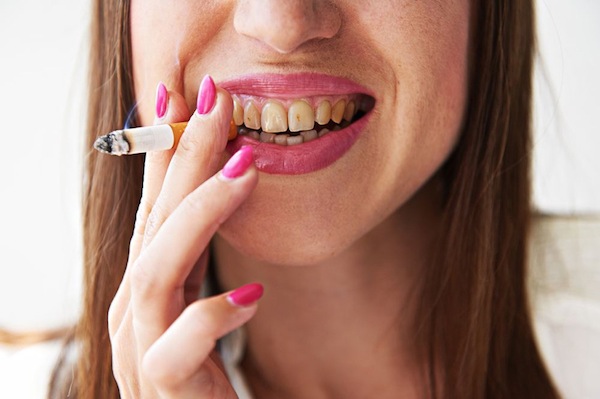
Smoking can do more damage to your oral health beyond teeth discoloration. Aside from the increased risk of periodontal disease, root caries, peri-implantitis, and oral precancerous and cancerous lesions, smoking apparently makes you a bad candidate for dental implants too. Research published by the American Dental Association has found that there is a higher chance of dental implant failure if the patient is a smoker. In the study, 66 patients who received dental implants were monitored for five years. The rate of implant failure for smokers was 15.8 percent, compared to 1.4 percent for patients who don’t smoke.
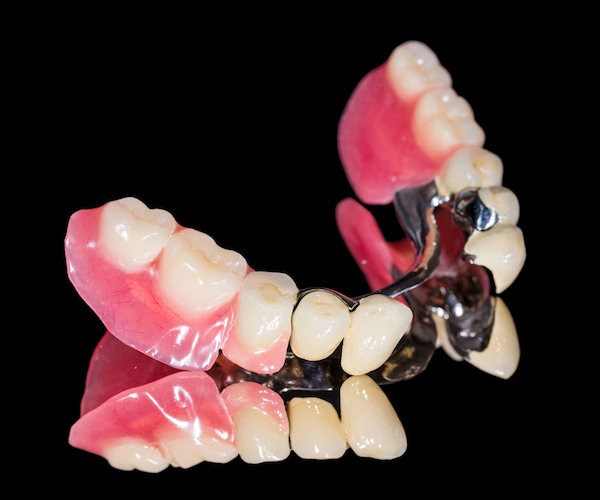
Patients in Houston with partial dentures often enjoy more confidence when smiling while also benefiting from a renewed ability to properly chew and digest food. Partials that are well-made and properly fitted can be fairly durable and a smart investment. Yet, proper cleaning is necessary to ensure partial dentures perform as expected. Care also involves paying attention to adjacent teeth and gums, and checking in with your dentist regularly.
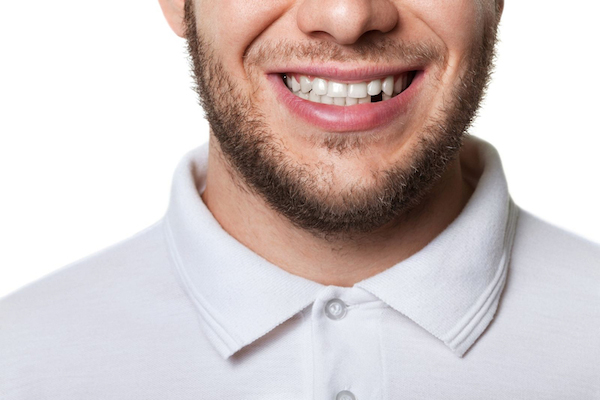
Having an active lifestyle is definitely a good thing. Being physically active, however, can sometimes lead to missing a tooth or set of teeth. Luckily for you, it’s possible to complete your smile again. One solution recommended by dentists is a dental implant.
